In our Marketing 101 Series we demystify Digital Marketing by walking through the industry fundamentals and basic terminology. So, if you don't know your SEM from your SEO or the difference between Opt-In and CAN-SPAM - this one's for you!
Pay Per Click or PPC is a type of Search Engine Marketing largely made famous by Google. Perhaps when searching on their website you remember seeing a little yellow box of results above the usual ones?
They are 'Sponsored Results' also known as 'Paid Search' but both effectively advertising whereby a company or companies have paid to be positioned there in the hope that you will take more notice of their listing than any other. And largely, it works. Very well in fact.
Disclaimer in case Microsoft is reading this: ofcourse Google is not the only place that does this. Bing does too....
Whether or not you are using Google Adwords or Microsoft Bing for your PPC, here are some of the terms that you will come across in handy alphabetical order. Enjoy!
Ad Extensions
Additional information you can add to you ad. The most popular type of ad extension is sitelinks which allow you to add links to additional pages on your site underneath your main ad. There are many other ad extensions though such as call extensions, location extensions and social extensions.
Ad Rank
A measure that takes into account your Quality Score and bid to determine the position on the page your ad will show.
Ad Scheduling / Day Parting
Allows you to adjust bids by a percentage at campaign level depending on time of day or day of week.
Click Through Rate (CTR)
The number of clicks your ad receives divided by the number of impressions. A high CTR is a good sign that your ad is relevant and stands out from competitors and it can lead to increases in quality score, lower CPCs and higher average positions.
However, a lower CTR is not always necessarily a bad thing, for example, including a price in your ad might reduce the number of people clicking on it but those that do might be more likely to convert. Additionally, ads in higher positions often see the highest CTR and search partners and the display network usually see lower CTRs than search.
Conversion Rate (CR)
The number of conversions (sales, leads etc) divided by number of clicks.
Cost Per Acquisition (CPA) / Cost Per Lead (CPL) / Cost Per Sale (CPS)
The amount spent for each conversion.
Cost-per-click (CPC)
Actual CPC is the amount you pay for each click on your ad. Your actual CPC will not be higher than the Max CPC you assign a particular keyword but it is often lower depending on your quality score and the ad rank of competitors.
Impressions
The number of times an ad is shown.
Impression Share
The number of times your ad is actually shown divided by the number of times it entered the auction to be shown. If this is less than 100% your ads will be missing out on potential traffic. An ad might lose out on impression share because there is not enough budget or because ad rank is too low.
Keyword
The word or phrase chosen by an advertiser that is used to determine whether an ad will show for a particular search term.
Match Type
A property of the keyword that determines which search terms a keyword is eligible to show for. There are several match types:
- Exact – search term must match the keyword exactly
- Phrase – search term contains keyword in that precise order
- Broad – search terms contains keyword, misspells, similar terms and synonyms in any order
- Modified broad – search terms contains keyword, misspells, similar terms but not synonyms in any order. You can also specify negative keywords which prevent an ad from showing if the search term contains that word or phrase.
Product Listing Ads (PLAs)
Ads that show on Google Search and Google Shopping that contain an image of a product, its price and the store name. These are set up within AdWords using a product feed in the Google Merchant Centre.
Quality Score
Google assigns keywords a Quality Score which is represented through the interface by a number from 1 to 10 (10 being highest) based on their relevance. This takes into account factors such as CTR, landing page quality and relevance, and relevance of the keyword to the search term and ad. A high quality score can lead to higher positions and lower CPCs.
Remarketing
Remarketing lets you display ads to users who you know have previously visited your site.
Return on Investment (ROI)
A measure of how much money is made compared to how much is spent. One of the benefits of paid search is that you can track each sale or lead right down to individual keyword level so you can measure ROI at a very granular level and optimise accordingly to improve ROI.
Search term / Search Query
The word or phrase searched for in a search engine.
How many did you know? If you'd like to add any more please feel free to use the comment section below. Or if you'd like to talk about a PPC Campaign or another form of Search Engine Marketing please use the contact form to get in touch. You could also give us a call in the office on 020 3303 0005 if you prefer.




